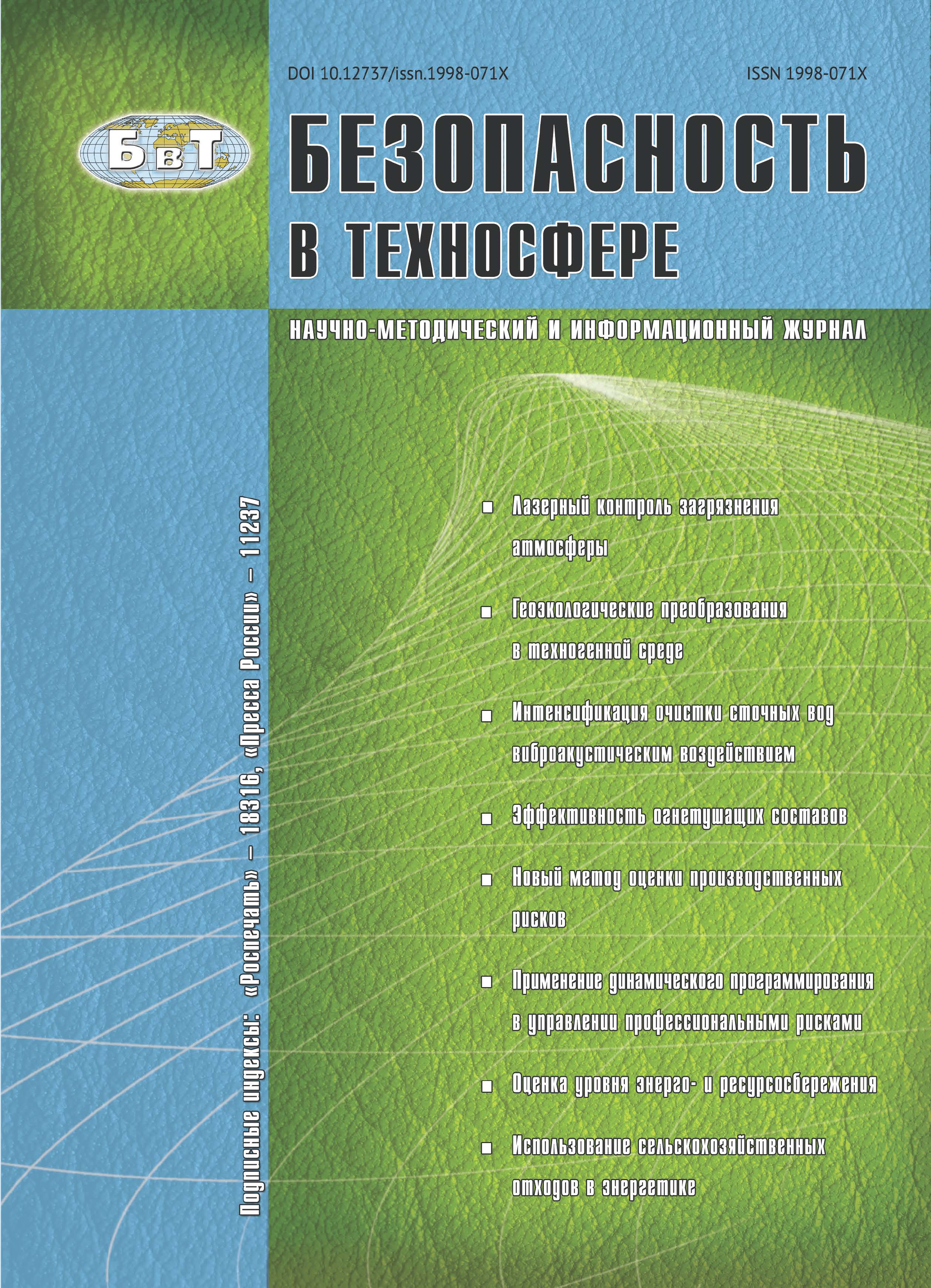from 01.01.1997 until now
Moscow, Moscow, Russian Federation
Urgency of the problem of sludge treatment and disposal in recent times is noted in this paper. Questions related to sludge and other waste treatment by centrifugation both with pre-treatment, and without it, have been considered. It has been demonstrated that the treatment is more effective at heating of above-noted waste, and by reagents adding. As a result of use of centrifuges at a stage of above-noted waste treatment it is possible to reach rather high degree of separation into liquid and firm phases which can be used in various directions. Further dewatering is possible by using a proposed drying scheme with a closed circuit of heat transfer fluid. The scheme includes a unit for heat transfer fluid preparation, a drying chamber, a device for a finished product unloading, a cleaning system for used drying agent, a unit for additional cleaning of heat transfer fluid, dual-circuit system of pneumatic transport for the finished product. The proposed scheme contributes to exclusion of sludge’ toxic substances from getting into the environment. Experimental studies of activated sludge suspension thickening process after secondary clarifiers in centrifuges of different types have been carried out. Tests were conducted on laboratory and industrial direct-flow and counter-flow centrifuges. Optimal parameters and modes for centrifugation and thermo-reactant treatment were selected. Effectiveness of preliminary thermo-reactant treatment at a predetermined optimal centrifugation mode for activated sludge has been confirmed. The solids content in the concentrate of microbial biomass at the load 10–13 m3/h reached 9–10 % DIA. At the maximum capacity was used one nozzle with 6 mm diameter. Minimum specific dosage of flocculent is about 2 kg per 1 ton of dry product.
production waste, sludge, activated sludge, centrifugation, settling-type centrifuge, drying, closed circuit of heat transfer fluid, chemical reagents.
Проблема обработки осадков и их утилизации на протяжении последних десятилетий стала весьма актуальной, пока не просматриваются универсальные пути решения задач в этом направлении [1–6]. По- прежнему многотоннажные отходы в малой степени утилизируются, а их основное количество складируется на полигонах. Поэтому новые технические решения очень актуальны для практических технологий по обработке и утилизации различных отходов [7, 8].
1. Aleksandrov A. A., Arkharov I. A., Bagrov V. V., Devyanin S. N., Ksenofontov B. S., Lobanov B. S., Markov V. A., Sereda A. V., Sharin E. A., Shpak A. V. Neftyanye motornye topliva: ekologicheskie aspekty primeneniya [Petroleum motor fuels: environmental aspects of the application]. Moscow, NITs «Inzhener» Publ., Oniko-M Publ., 2014. 691 p. (in Russian).
2. Ksenofontov B. S. Ochistka stochnykh vod: flotatsiya i sgushchenie osadkov [Wastewater treatment: sludge thickening and flotation]. Moscow, Khimiya Publ., 1992. 144 p. (in Russian).
3. Ksenofontov B. S., Kozodaev A. S., Taranov R. A., Senik E. V., Vinogradov M. S., Voropaeva A. A. Intensifikatsiya protsessa pererabotki nefteshlamov [The intensification of the process of refining oil sludge]. Santekhnika [Plumbing]. 2015, I. 2, pp. 58-60 (in Russian).4. Ksenofontov B. S. Water systems f lotation treatment. Wastewater and soil flotation treatment. Saarbrucken: LAP LAMBERT Acad. Publ., 2011. 189 p.
4.
5. Gron’ V.A., Korostovenko V. V., Shakhray S. G., Kaplichenko N. M., Galayko A. V. Problema obrazovaniya, pererabotki i utilizatsii nefteshlamov [The problem of education, treatment and disposal of sludge]. Uspekhi sovremennogo estestvoznaniya [Successes of modern science]. 2013, I. 9, pp. 159-162 (in Russian).
6. Gvozdev V. D., Ksenofontov B. S. Ochistka proizvodstvennykh stochnykh vod i utilizatsiya osadkov [Process Wastewater Treatment and disposal of sediments]. Moscow, Khimiya Publ., 1988. 112 p. (in Russian).
7. Akhmetov A. F., Gaysina A. P., Mustafin I. A. Tekhnologiya utilizatsii neftyanykh shlamov [The technology of recycling of oil sludge]. Neftegazovoe delo [Oil and gas business]. 2011, V. 9, I. 4, pp. 95-97 (in Russian).
8. Meshcheryakov S. V., Pestsov K. K., Shmal’ G.I., Ivanova E.A. O neobkhodimosti kompleksnogo podkhoda k pererabotke neftyanykh otkhodov [On the need for an integrated approach to processing waste oil]. Bezopasnost’ zhiznedeyatel’nosti [Health and Safety]. 2012, I. 3, pp. 31-33 (in Russian).
9. Timonin A. S. Inzhenerno-ekologicheskiy spravochnik [Engineering and Environment directory]. Kaluga, N. Bochkarevoy Publ., 2003, V. 2, 884 p.






